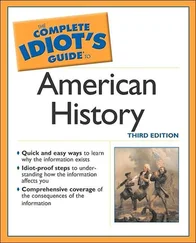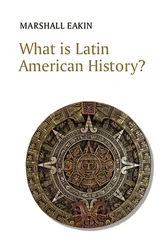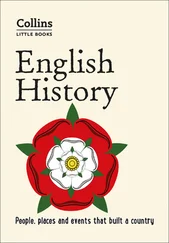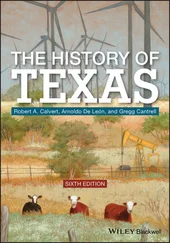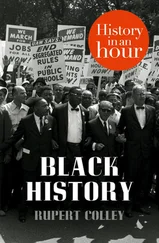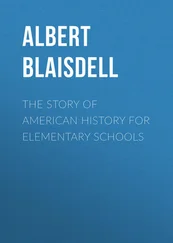Robert Mackenzie - America. A history
Здесь есть возможность читать онлайн «Robert Mackenzie - America. A history» — ознакомительный отрывок электронной книги совершенно бесплатно, а после прочтения отрывка купить полную версию. В некоторых случаях можно слушать аудио, скачать через торрент в формате fb2 и присутствует краткое содержание. Жанр: foreign_language, foreign_prose, на английском языке. Описание произведения, (предисловие) а так же отзывы посетителей доступны на портале библиотеки ЛибКат.
- Название:America. A history
- Автор:
- Жанр:
- Год:неизвестен
- ISBN:нет данных
- Рейтинг книги:4 / 5. Голосов: 1
-
Избранное:Добавить в избранное
- Отзывы:
-
Ваша оценка:
- 80
- 1
- 2
- 3
- 4
- 5
America. A history: краткое содержание, описание и аннотация
Предлагаем к чтению аннотацию, описание, краткое содержание или предисловие (зависит от того, что написал сам автор книги «America. A history»). Если вы не нашли необходимую информацию о книге — напишите в комментариях, мы постараемся отыскать её.
America. A history — читать онлайн ознакомительный отрывок
Ниже представлен текст книги, разбитый по страницам. Система сохранения места последней прочитанной страницы, позволяет с удобством читать онлайн бесплатно книгу «America. A history», без необходимости каждый раз заново искать на чём Вы остановились. Поставьте закладку, и сможете в любой момент перейти на страницу, на которой закончили чтение.
Интервал:
Закладка:
For some years the difficulties which the colonists encountered were almost overwhelming. There seemed at times even to be danger that death by starvation would end the whole enterprise. But they were a stout-hearted, patient, industrious people, and labour gradually brought comfort. The virgin soil began to yield them abundant harvests. They fished with such success that they manured their fields with the harvest of the sea. They spun and they weaved. They felled the timber of their boundless forests. They built ships, and sent away to foreign countries the timber, the fish, the furs which were not required at home. 1643 A.D. Ere many years a ship built in Massachusetts sailed for London, followed by “many prayers of the churches.” Their infant commerce was not without its troubles. They had little or no coin, and Indian corn was made a legal tender. Bullets were legalized in room of the farthings which, with their other coins, had vanished to pay for foreign goods. But no difficulty could long resist their steady, undismayed labour.
They were a noble people who had thus begun to strike their roots in the great forests of New England. Their peculiarities may indeed amuse us. The Old Testament was their statute-book, and they deemed that the institutions of Moses were the best model for those of New England. They made attendance on public worship compulsory. They christened their children by Old Testament names. They regulated female attire by law. They considered long hair unscriptural, and preached against veils and wigs.
The least wise among us can smile at the mistakes into which the Puritan Fathers of New England fell. But the most wise of all ages will most profoundly reverence the purity, the earnestness, the marvellous enlightenment of these men. From their incessant study of the Bible they drew a love of human liberty unsurpassed in depth and fervour. Coming from under despotic rule, they established at once a government absolutely free. They felt – what Europe has not even yet fully apprehended – that the citizens of a State should be able to guide the affairs of that State without helpless dependence upon a few great families; that the members of a Church ought to guide the affairs of that Church, waiting for the sanction of no patron, however noble and good. It was one of their fundamental laws that all strangers professing the Christian religion and driven from their homes by persecutors, should be succoured at the public charge. The education of children was almost their earliest care. The Pilgrims bore with them across the sea a deep persuasion that their infant State could not thrive without education. Three years after the landing, it was reported of them among the friends they had left in London, that “their children were not catechised, nor taught to read.” The colonists felt keenly this reproach. They utterly denied its justice. They owned, indeed, that they had not yet attained to a school, much as they desired it. But all parents did their best, each in the education of his own children. In a very few years schools began to appear. Such endowment as could be afforded was freely given. Some tolerably qualified brother was fixed upon, and “entreated to become schoolmaster.” And thus gradually the foundations were laid of the noble school system of New England. Soon a law was passed that every town containing fifty householders must have a common school; every town of a hundred householders must have a grammar school. Harvard College was established within fifteen years of the landing.
The founders of New England were men who had known at home the value of letters. Brewster carried with him a library of two hundred and seventy-five volumes, and his was not the largest collection in the colony. The love of knowledge was deep and universal. New England has never swerved from her early loyalty to the cause of education.
Every colonist was necessarily a soldier. The State provided him with arms, if poor; required him to provide himself, if rich. His weapons were sword, pike, and matchlock, with a forked stick on which to rest his artillery in taking aim. The people were carefully trained to the use of arms. In the devout spirit of the time, their drills were frequently opened and closed with prayer.
Twenty-three years after the landing of the Pilgrims the population of New England had grown to twenty-four thousand. Forty-nine little wooden towns, with their wooden churches, wooden forts, and wooden ramparts, were dotted here and there over the land. There were four separate colonies, which hitherto had maintained separate governments. They were Plymouth, Massachusetts, Connecticut, and New Haven. There appeared at first a disposition in the Pilgrim mind to scatter widely, and remain apart in small self-governing communities. For some years every little band which pushed deeper into the wilderness settled itself into an independent State, having no political relations with its neighbours. But this isolation could not continue. The wilderness had other inhabitants, whose presence was a standing menace. Within “striking distance” there were Indians enough to trample out the solitary little English communities. On their frontiers were Frenchmen and Dutchmen – natural enemies, as all men in that time were to each other. 1643 A.D. For mutual defence and encouragement, the four colonies joined themselves into the United Colonies of New England. This was the first confederation in a land where confederations of unprecedented magnitude were hereafter to be established.
CHAPTER V
THE NEW ENGLAND PERSECUTIONS
The Puritans left their native England and came to the “outside of the world,” as they called it, that they might enjoy liberty to worship God according to the way which they deemed right. They had discovered that they themselves were entitled to toleration. They felt that the restraints laid upon themselves were very unjust and very grievous. But their light as yet led them no further. They had not discovered that people who differed from them were as well entitled to be tolerated as they themselves were. We have no right to blame them for their backwardness. Simple as it seems, men have not all found out, even yet, that every one of them is fully entitled to think for himself.
1631 A.D. And thus it happened that, before the Pilgrims had enjoyed for many years the cheerful liberty of their new home, doctrines raised their heads among them which they felt themselves bound to suppress. One February day there stepped ashore at Boston a young man upon whose coming great issues depended. His name was Roger Williams. He was a clergyman – “godly and zealous” – a man of rare virtue and power. Cromwell admitted him, in later years, to a considerable measure of intimacy. He was the friend of John Milton – in the bright days of the poet’s youth, ere yet “the ever-during dark” surrounded him. From him Milton acquired his knowledge of the Dutch language. He carried with him to the New World certain strange opinions. Long thought had satisfied him that in regard to religious belief and worship man is responsible to God alone. No man, said Williams, is entitled to lay compulsion upon another man in regard to religion. The civil power has to do only with the “bodies and goods and outward estates” of men; in the domain of conscience God is the only ruler. New England was not able to receive these sentiments. Williams became minister at Salem, where he was held in high account. In time his opinions drew down upon him the unfavourable notice of the authorities. The General Court of Massachusetts brought him to trial for the errors of his belief. His townsmen and congregation deserted him. His wife reproached him bitterly with the evil he was bringing upon his family. Mr. Williams could do no otherwise. He must testify with his latest breath, if need be, against the “soul oppression” which he saw around him. The court heard him, discovered error in his opinions, declared him guilty, and pronounced upon him sentence of banishment.
Читать дальшеИнтервал:
Закладка:
Похожие книги на «America. A history»
Представляем Вашему вниманию похожие книги на «America. A history» списком для выбора. Мы отобрали схожую по названию и смыслу литературу в надежде предоставить читателям больше вариантов отыскать новые, интересные, ещё непрочитанные произведения.
Обсуждение, отзывы о книге «America. A history» и просто собственные мнения читателей. Оставьте ваши комментарии, напишите, что Вы думаете о произведении, его смысле или главных героях. Укажите что конкретно понравилось, а что нет, и почему Вы так считаете.


